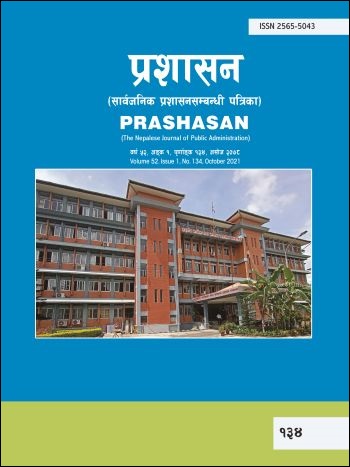‘Balance’ in Nepali Foreign Policy: Experiences before 1990
DOI:
https://doi.org/10.3126/prashasan.v52i1.44583Keywords:
Nepal Foreign Policy, Balance, India, China, Immediate Neighborhood, PanchayatAbstract
‘Balanced foreign policy’ is a term which is frequently used by decision makers, academics, political leaders and general public in Nepal’s foreign policy, especially concerning our immediate neighborhood. The Foreign Policy of Nepal- 2077 also states that Nepal practices balanced and independent (santulit and swatantra) foreign policy. The issue is being debated further in recent years as some felt that Nepal’s foreign policy tilted towards China after the Indian blockade of 2015. However, there seems to be no common understanding of what ‘balance’ means or what does it imply for Nepali foreign policy. Drawing on the foreign policy of Nepal from 1950-1990, this paper argues that Nepal has not practiced ‘balanced’ foreign policy in those years. Nepal has bandwagon with India, diversified its relations, and attempted neutrality. This paper, further, argues that ‘balance’ implies a zero-sum game mentality. Hence, ‘balance of power’ is neither desirable nor achievable. Nepali foreign policy requires a major national discussion on its foreign policy and framing that relies on mutual gains.
Downloads
Downloads
Published
How to Cite
Issue
Section
License
- The copyright of published materials of the journal remains with Ministry of Federal Affairs and General Administration.
- The published article cannot be reproduced or copied commercially by any person or institution but it can be used non-commercially for academic, research and training purpose providing proper citation is given.




